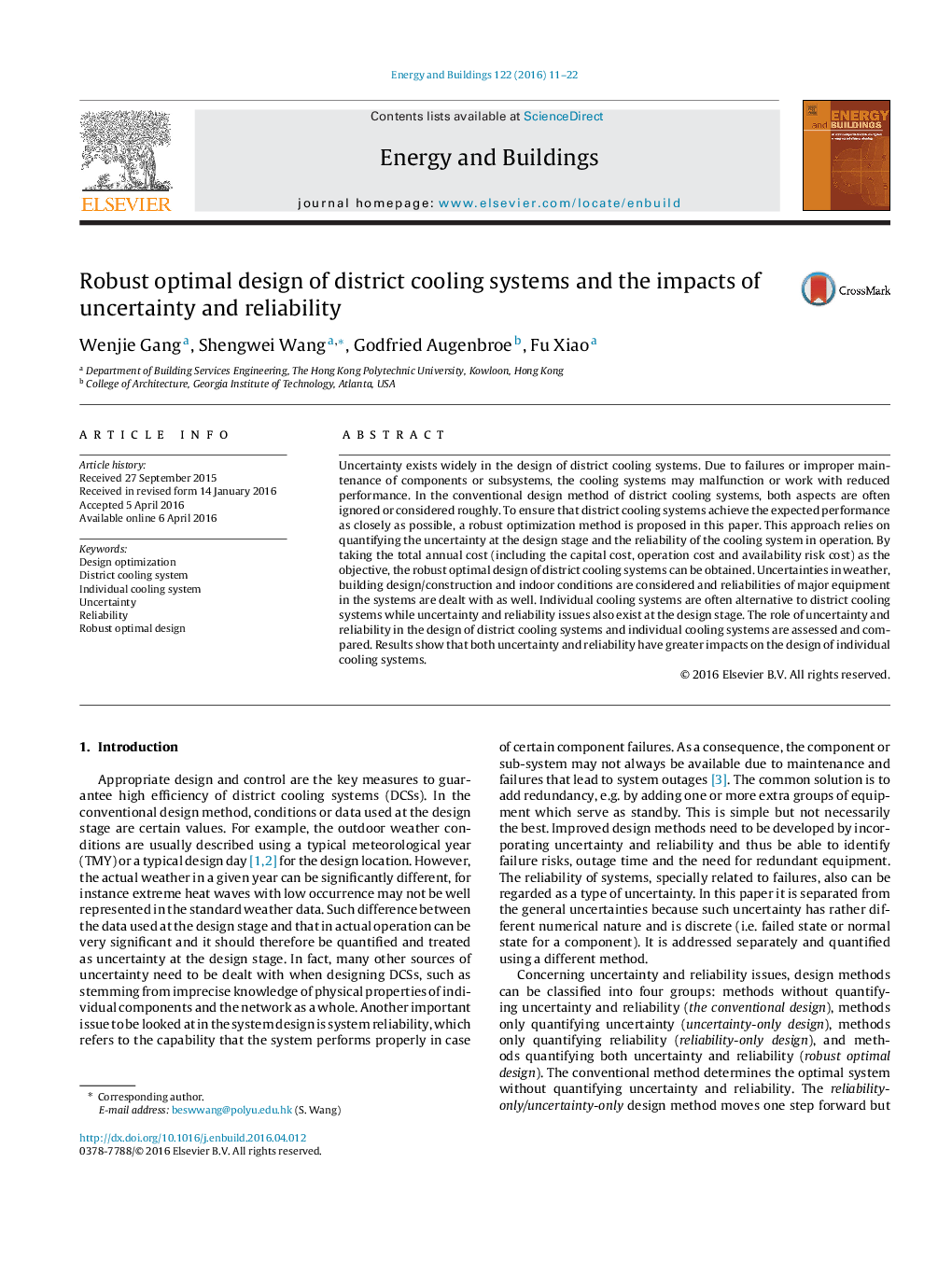| Article ID | Journal | Published Year | Pages | File Type |
|---|---|---|---|---|
| 262060 | Energy and Buildings | 2016 | 12 Pages |
•A robust optimal design method for DCSs is proposed and demonstrated.•Uncertainty and reliability are considered and quantified in design optimization.•Performance of DCSs using different design methods is analyzed and compared.•Impacts of uncertainty and reliability on the design of DCS and ICS are assessed.•The robust optimal method improves the design of DCSs and ICSs.
Uncertainty exists widely in the design of district cooling systems. Due to failures or improper maintenance of components or subsystems, the cooling systems may malfunction or work with reduced performance. In the conventional design method of district cooling systems, both aspects are often ignored or considered roughly. To ensure that district cooling systems achieve the expected performance as closely as possible, a robust optimization method is proposed in this paper. This approach relies on quantifying the uncertainty at the design stage and the reliability of the cooling system in operation. By taking the total annual cost (including the capital cost, operation cost and availability risk cost) as the objective, the robust optimal design of district cooling systems can be obtained. Uncertainties in weather, building design/construction and indoor conditions are considered and reliabilities of major equipment in the systems are dealt with as well. Individual cooling systems are often alternative to district cooling systems while uncertainty and reliability issues also exist at the design stage. The role of uncertainty and reliability in the design of district cooling systems and individual cooling systems are assessed and compared. Results show that both uncertainty and reliability have greater impacts on the design of individual cooling systems.
